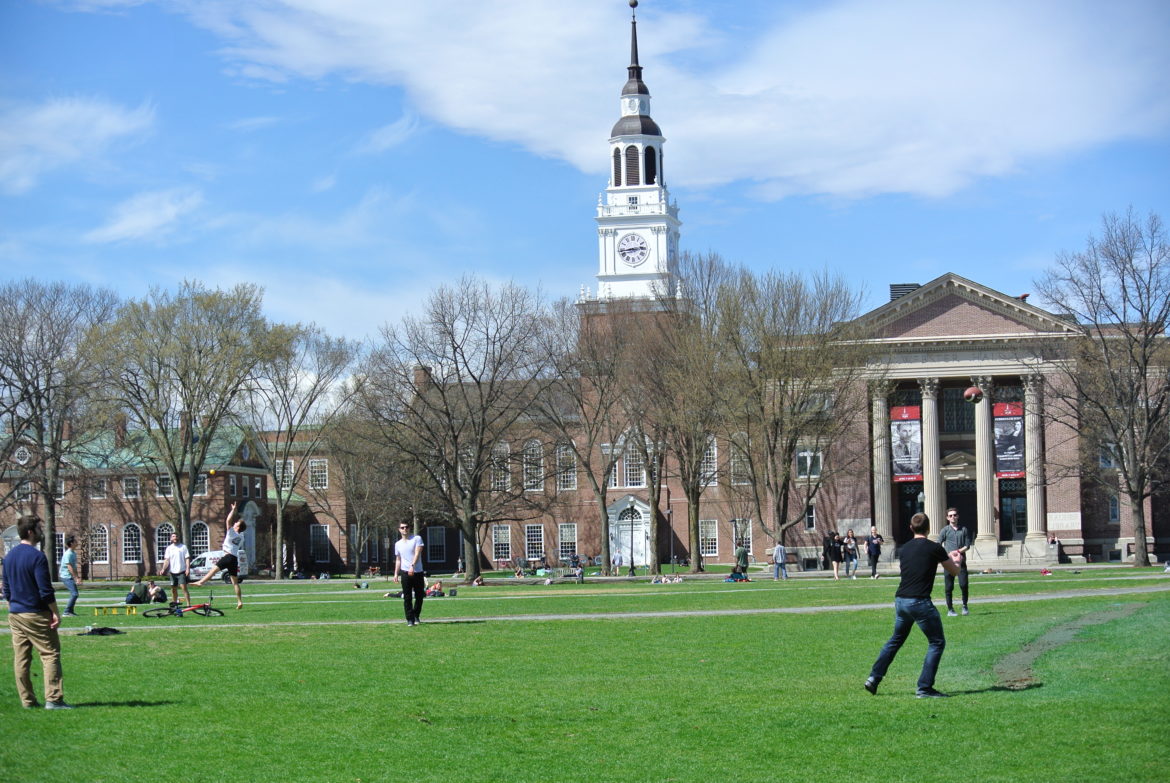By DAMIEN FISHER, InDepthNH.org
The visa of foreign-born Dartmouth College grad student Xiaotian Liu is back in place after a federal judge put a temporary halt on the purge being acted out by President Donald Trump’s administration.
“The court’s temporary restoration of our client’s student status means that he can continue studying and working on what he loves – computer science,” said Gilles Bissonnette, Legal Director of the ACLU of New Hampshire.
Liu, a Chinese national who is working towards his PhD, is represented by the ACLU of New Hampshire and Shaheen & Gordon, went to the United States District Court this week after his F-1 student visa was revoked as part of a broader dragnet sweeping up foreign-born college students. Wednesday’s legal victory shows that the government must follow the law.
“Today’s decision reaffirms the basic principle that a person who follows all the rules should not be subject to losing their immigration status – and everything they have worked so hard to achieve – based upon the Government’s whim. Just as individuals must comply with the law, so should our government,” Ronald L. Abramson, Chair of the Immigration Law Group at Shaheen & Gordon, said.
In recent weeks the Immigration and Customs Enforcement has been detaining students at colleges and universities throughout the country as more than 300 student visas have been revoked, sometimes with little or no warning to the student of the school, according to the Associated Press and CNN.
The Trump Administration has tried to justify the visa cancellations and detentions, in some cases, by claiming these students committed crimes or engaged in protests. There’s little proof of criminal activity offered by Trump officials, and it is not illegal in America to take part in a political protest.
In Liu’s case, there is no justification that’s been offered, dubious or otherwise, to explain why he was targeted for removal, according to the ACLU and Shaheen & Gordon. Liu has never been charged with a crime or even received a traffic ticket, they say. The computer science grad student has never taken part in any political protest or movement, either, they said.
Liu is one of two Dartmouth students whose visa was revoked last week. Both Liu and the other student, so far unnamed, had their visa records terminated last week in the Student and Exchange Visitor Information System, or SEVIS. That is an online information portal administered by the Department of Homeland Security. Information about the other student is not available.
College representative Jana Barnello told The Dartmouth the revocations were discovered by college staff doing a proactive check of the database. No one at the school was notified of the visa termination by federal officials, nor given any reason for the termination, according to Barnello. The school plans to keep monitoring the system.
“As was shared with our international community in a message earlier today, [the Dartmouth Office of Visa and Immigration Services] continues to monitor SEVIS and will immediately email any affected student or scholar in the event a SEVIS record is terminated,” Barnello told The Dartmouth.
Trump got elected on the promise to deport as many people as possible. His administration is already detaining and deporting people in the country illegally, and many who are here legally. Those arrested by federal agents are being sent to prisons outside the United States despite the fact they have committed no crimes in the U.S. or elsewhere. It is not a criminal offense in the U.S. to enter the country illegally or overstay a visa.
In the case of Venezuelan immigrants being arrested and sent to a notoriously brutal prison in El Salvador, 60 Minutes reports 75 percent of those deported have no criminal record.
And Trump is planning to expand his deportation regime. This week his Press Secretary Karoline Leavitt, confirmed Trump is considering ways to deport American citizens.
“The president has said if it’s legal, right, if there is a legal pathway to do that, he’s not sure. We are not sure if there is, it’s an idea that he has simply floated and has discussed very publicly as in the effort of transparency,” Leavitt said.





